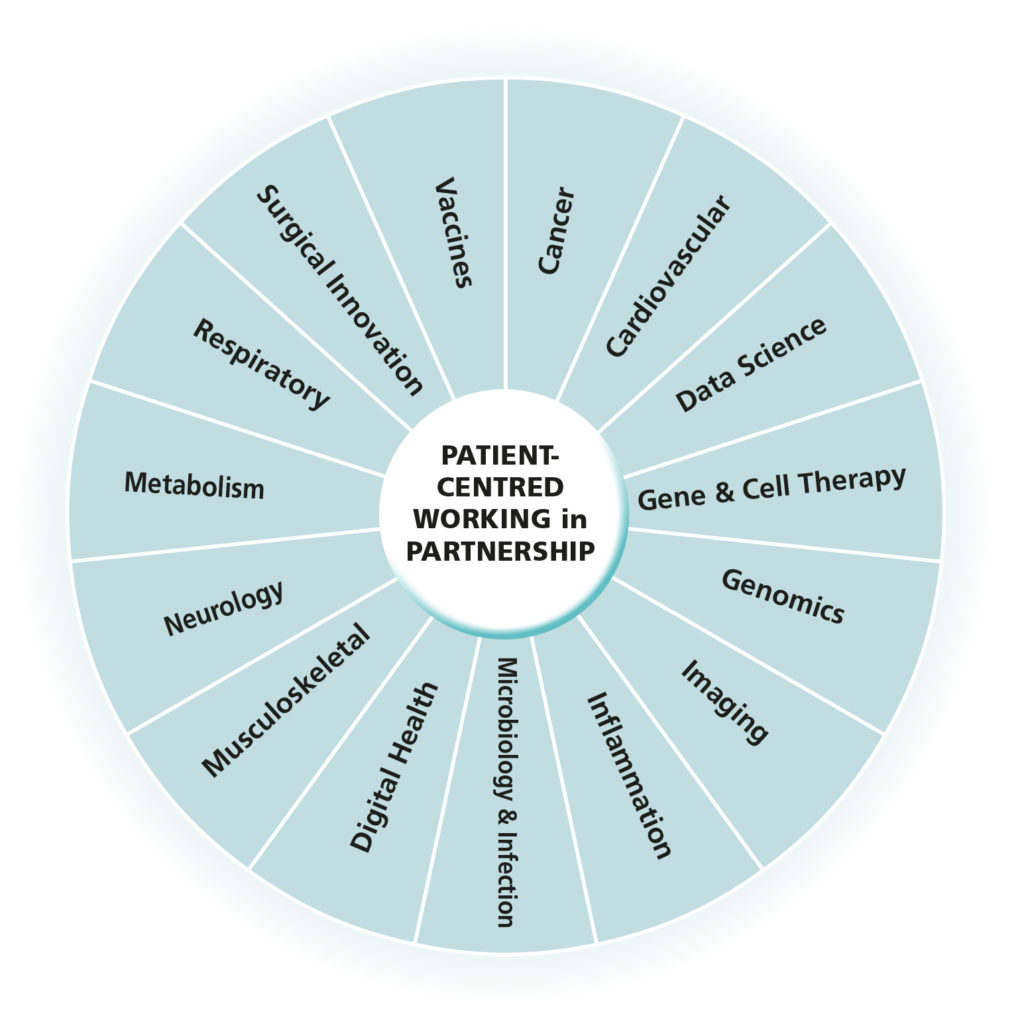The NIHR Oxford Biomedical Research Centre (BRC) is based at Oxford University Hospitals (OUH) NHS Foundation Trust and run in partnership with the University of Oxford.
It was one of the first five BRCs funded by the National Institute for Health and Care Research (NIHR) in 2007. The current award runs from 1 December 2022 until to 31 March 2028 (total funding £95.9m).
The NIHR funds, enables and delivers world-leading health and social care research that improves people’s health and wellbeing and promotes economic growth.
NIHR BRCs are collaborations between universities and NHS organisations that bring together academics and clinicians to translate scientific breakthroughs into potential new treatments, diagnostics and medical technologies that benefit patients, improve the delivery of care by the NHS and support the wider economy.
The NIHR has awarded £816 million over five years to 20 BRCs across England.
Oxford has long been at the forefront of a range of medical research disciplines – from genetics and cell therapy to neuroscience, from cardiovascular disease and cancer to the use of data and artificial intelligence. Oxford also has one of the largest clinical trial portfolios in the UK and considerable expertise in taking discoveries from the laboratory into the clinic.
This BRC will fund innovation across 15 research themes:

Oxford has world-respected researchers and clinicians, but this is not enough. We try to make the most of our research through local and national collaborations: researchers work closely with patients and the public from all backgrounds, and we have thriving partnerships with universities and NHS Trusts across the UK. This ensures that our research reaches the populations who need it most and that we focus on NHS priorities, such as long-term conditions, and joining up care from hospital to the community.
This collaborative approach was demonstrated by our COVID-19 response, when our scientists developed and tested the Oxford/AstraZeneca vaccine across the UK. And the RECOVERY Trial, the world’s largest trial looking at potential COVID-19 treatments, recruited 43,000 participants across 180 NHS sites and identified three effective treatments – and just as importantly, ruled out several more. We also led the national testing programme involving over 200,000 households to track infections and immune responses in the UK population.
The Oxford BRC has a core team that supports researchers across our 15 themes in areas such as patient and public involvement and engagement, business development, training and education and ethics, as well as working to foster a supportive and inclusive research culture which ensures that the next generation of translational scientists – including nurses and other healthcare professionals – fulfil their potential.
The partnership between OUH and the University of Oxford has a joint governance structure which ensures the best possible use of shared resources and facilities, and operational management of clinical research activities. It includes:
- The Strategic Partnership Board (SPB), which meets quarterly to identify joint strategic goals and support major Partnership initiatives.
- The BRC Steering Committee (SC), which provides strategic oversight of the BRC and holds the Director and the Theme Leads to account.

Since August 2018, the Oxford BRC’s Director has been Professor Helen McShane, Professor of Vaccinology based in the University’s Jenner Institute and Honorary Consultant in Infectious Diseases at OUH.
The integrated partnership between OUH and University of Oxford has been strengthened and broadened through the re-designation of the Oxford Academic Health Partners (OAHP) as one of the national Academic Health Sciences Centres. OAHP has a unified senior leadership that prioritises research for patient benefit.
Oxford’s academic-clinical health research partnership is supported by a Joint Research Office (JRO), which brings together university and NHS research administration teams to facilitate biomedical and translational research. Originally established in 2011 by the University of Oxford and OUH to improve communication and streamline processes by pooling knowledge and expertise, the JRO was expanded in 2022 to include Oxford Health NHS Foundation Trust and Oxford Brookes University.
The JRO – which offers vital research services such as research governance; human tissue governance; ethics; funding and contracts; intellectual property; insurance; and business development – was recognised by the Academy of Medical Sciences as a national exemplar in 2019.
Find out more about the NIHR: